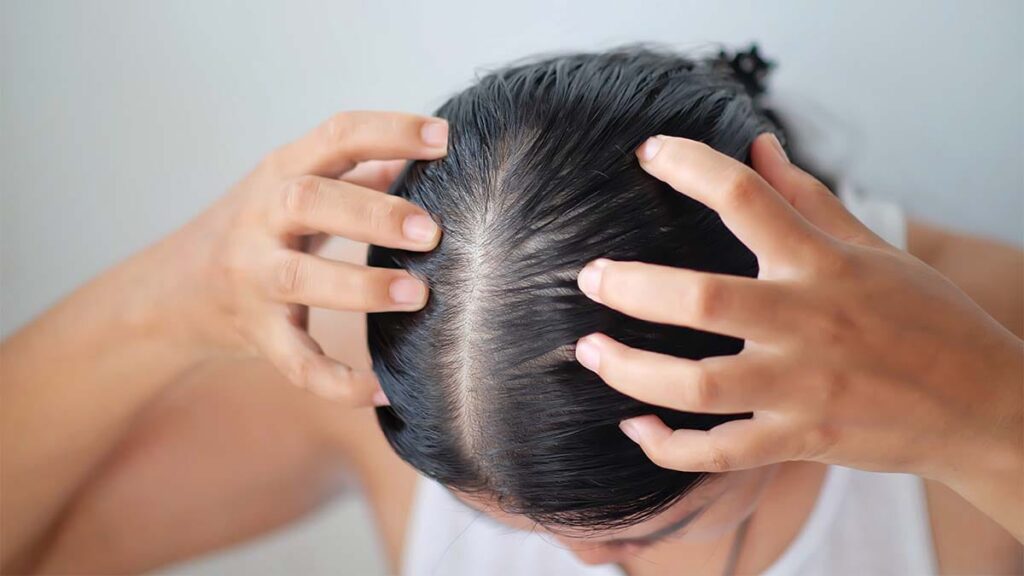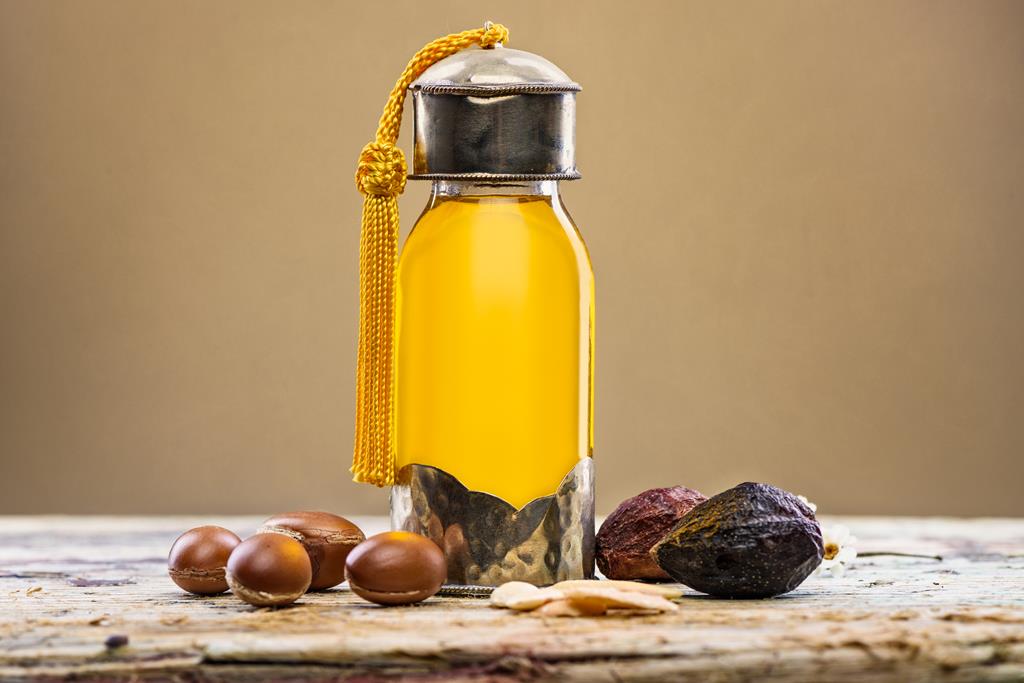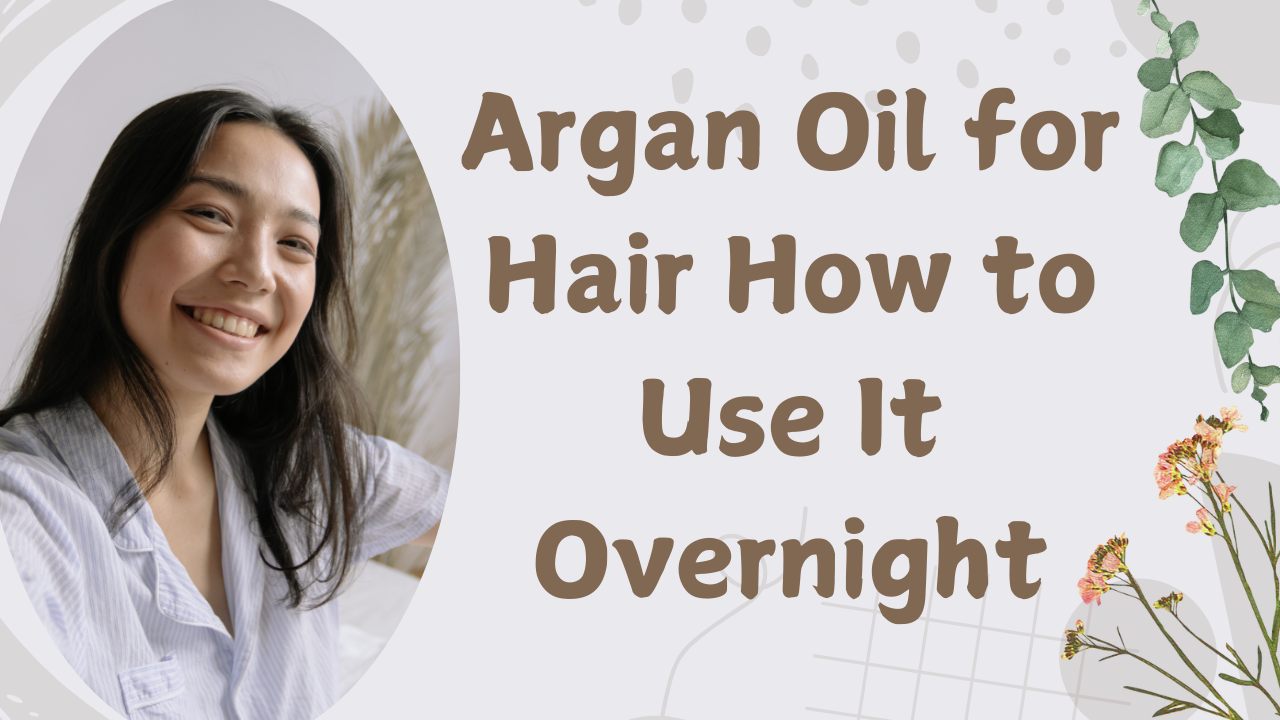Ready to revive your hair’s natural glow? Argan oil is the answer. This liquid gold, extracted from the argan tree, is bursting with antioxidants, fatty acids, and vitamin E – the perfect blend to quench your hair’s thirst for moisture and vitality. This oil helps repair and restore hair’s natural moisture barrier, leaving it soft, smooth, and manageable. In this blog, we’ll learn overnight benefits of Argan Oil for Hair Growth.

Did you know that 75% of women experience hair damage due to heat styling, coloring, and environmental stressors? Argan oil is the solution.
How Argan Oil is Made
Argan oil’s production involves a labor-intensive, artisanal process. Ripe argan berries are hand-picked, dried, and cracked open to reveal the kernel, which is then roasted and ground into a fine paste. The paste is cold-pressed or traditionally pressed to extract the golden oil, which is filtered through cotton or cheesecloth to remove impurities. Finally, rigorous quality control measures ensure the oil meets international standards, resulting in a high-quality, nutrient-rich oil prized for its cosmetic and culinary benefits


Benefits of Using Argan Oil for Hair Overnight
A 2016 study published in the journal dermatolgy and dermatologic surgery found that Argan oil helped nourish and moisturize hair overnight.
Here the top 5 benefits of argan oil for hair growth:
1. Deep Hydration: Argan oil penetrates deep into the hair shaft, providing long-lasting moisture and softness.
2. Reduced Frizz: Overnight application helps tame frizz and flyaways, leaving hair smooth and manageable.
3. Improved Elasticity: Argan oil’s antioxidants strengthen hair’s elasticity, reducing breakage and split ends.
4. Enhanced Shine: Wake up to radiant, healthy-looking locks with argan oil’s nourishing properties.
5. Protection from Damage: Argan oil’s antioxidants shield hair from environmental stressors and heat styling damage

How to Use Argan Oil for Hair Overnight
A 2017 study published and Dermatological sciences found that overnight use of Argan oil increase hair growth by reparing scalp health and reducing inflammation.
Pre-Application Tips to use argan oil for hair overnight.
1. Wash your hair with a gentle shampoo and conditioner.
2. Towel-dry your hair, leaving it somewhat sodden.
3. Eliminate any knot or bunches with a wide-tooth brush.

Application Steps:
1. Warm a small amount (1-2 tablespoons) of argan oil in your palms.
2. Massage the oil into the ends of your hair, working up to the mid-lengths.
3. Focus on the driest areas, avoiding the scalp.
4. Use a gentle, downward stroking motion to distribute the oil evenly.
Overnight Protection:
1. Cover your hair with a silk or satin scarf or sleep cap.
2. Use a pillowcase made from a smooth, breathable material.
3. Avoid using clips or ties that can cause hair breakage.
Morning Routine:
1. Wash your hair with a gentle shampoo.
2. Condition as usual.
3. Style your hair as desired.
Benefits of Argan Oil for Skin
Generally the Argan oil is rich in Vitamin, antioxidants, and essential fatty acids. Here are the top 5 benefits of Argan oil for skin:

1. Hydrates and Moisturizes: Argan oil deeply penetrates the skin, providing long-lasting hydration and softness.
2. Reduces Fine Lines and Wrinkles: Antioxidants and essential fatty acids in argan oil combat signs of aging, promoting smoother skin.
3. Protects Against Environmental Stressors: Argan oil’s antioxidants shield the skin from pollution, UV radiation, and other damaging factors.
4. Soothes and Calms: Anti-inflammatory properties of argan oil alleviate redness and irritation.
5. Improves Skin Elasticity: Vitamin E and fatty acids in argan oil enhance skin’s natural elasticity.
How to Use Argan Oil for Skin:
This is the method to use argan for skin:
1. Cleanse and Tone: Wash your skin with a gentle cleanser and tone with a rosewater or witch hazel.
2. Apply a Few Drops: Use 2-3 drops of argan oil and gently massage into your skin.
3. Target Specific Areas: Apply additional drops to areas of concern, such as fine lines, wrinkles, or dry patches.
4. Mix with Other Products: Blend argan oil with your favorite moisturizer or serum for enhanced benefits.
Side Effects of Argan oil
While Argan oil offers numerous benefits, it’s crucial to be aware of potential side effects. By understanding the risks and taking precautions, you can enjoy the advantages of Argan oil while minimizing adverse reactions.
1. Skin irritation (redness, itching, rashes)
2. Allergic reactions (hives, swelling, difficulty breathing)
3. Acne breakout
4. Gastrointestinal issues (nausea, diarrhea)
5. Interactions with medications

Precautions:
- Use pure, high-quality argan oil.
- Start with small amounts to avoid greasiness.
- Avoid using on oily hair or scalp.
Argan Oil Vs Almond Oil
When it comes to natural skincare, Argan oil and Almond oil are two popular options. But which one is best for you? Both oils excel at taming frizz and adding shine to hair. Almond oil’s protein content strengthens hair follicles, while Argan oil’s arganols repair and restore damaged strands. Whether used separately or blended together, these oils form a powerhouse duo for comprehensive skincare and haircare.
Key Differences:
- Argan oil is thicker and more nourishing, while almond oil is lighter and more easily absorbed.
- Argan oil has a stronger antioxidant profile, while almond oil has anti-inflammatory properties.

Choose Argan Oil If:
If you have dry, flaky skin choose argan because it has properties to repair skin.
- You have dry, mature, or damaged skin.
- You want intense hydration and anti-aging benefits.
Choose Almond Oil If:
If you have sensitive skin choose Almond oil.
- You have sensitive, oily, or combination skin.
- You prefer a lightweight, non-greasy moisturizer.
Misconceptions about Argan Oil
Here are the some misconceptions about Argan oil:
Is Argan oil made from Goat Poop
Is Argan oil made from goat poop? Generally No, this is a popular myth, Argan oil is not made from goat poop. This misconception likely originated from the fact that goats often eat argan berries, and then excrete the pits, which were traditionally collected and used to produce oil.

Argan oil expires quickly
Mostly high-quality Argan oil can last up to 2 years if stored properly.
Argan oil has no scientific backing
Argan oil has been studied extensively in various scientific fields. Studies have demonstrated Argan oil’s antioxidant, anti-inflammatory, and moisturizing properties.
Argan oil is a quick fix for all skin issues
While Argan oil offers numerous benefits, it may not address deep-seated skin concerns and should be used consistently as part of a comprehensive skincare routine.
Unlock your natural glow with the miracle of argan oil
